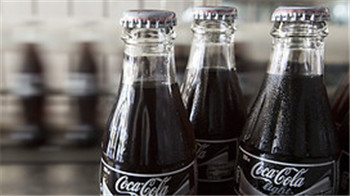(单词翻译:单击)

There is an unpalatable truth about the foods we crave: they are generally bad for us. Our evolutionary history has left us longing for sugars and fats, exactly the sort of energy-dense substances that stopped our ancestors from starving in lean times.
有个事实让我们难以接受:我们酷爱的食物往往对身体有害。人类进化的历史让我们渴望摄取糖和脂肪。正是这些高热量物质让我们的祖先在荒年免于饿死。
Those ingredients, now cheap and plentiful, are fuelling a worldwide rise in obesity and type 2 diabetes. The issue resurfaced in the UK last week with the publication of a report into public health, and on childhood obesity in particular. Now a bitter war has broken out between politicians and health experts on the merits of a tax on high sugar products such as soft drinks. I can understand the clamour — and such a move may shock us into cutting consumption — but a sugar tax does not quite hit the sweet spot.
如今这些成分变得便宜而充足,在全球范围内导致肥胖和2型糖尿病的增加。不久前,随着一份报告的发布,这个问题在英国重新引发了关注。这是一份有关公共健康、尤其是儿童肥胖问题的报告。现在,围绕着对软饮等高糖产品征税的好处,政治人士和健康专家之间爆发了一场激烈的战争。我能理解这种呼声,这样的举措可能会让我们感到震惊从而减少消费。但是,从开征糖税着手解决这个问题可能不是好办法。
In a high-income country, a levy substantial enough to deter abusers is likely to be unfair on those who exercise restraint. But it would also see the government flexing its fiscal muscles over an ingredient that is neither poisonous nor addictive; crowd out discussion of other undesirables such as saturated fats and salt; absolve manufacturers of the need to change their products; and, most worryingly, convey the impression that government can exonerate consumers from personal responsibility.
在高收入国家中,开征一项足以阻止沉溺者的重税对那些自我克制的人来说,可能是不公平的。而且,开征糖税的结果是,政府将会对一种既无毒也不会让人上瘾的调味料施展自己的财政影响力;这会淹没对其他不良物质的讨论,如饱和脂肪和盐分等;使制造商不必改变它们的产品;最令人担心的是,这传达了一种政府能让消费者免于承担个人责任的印象。
The World Health Organisation recommends that adults and children derive no more than 5 per cent of their total energy intake from free sugars (these include glucose, fructose, table sugar and those in honey, syrups and fruit juices, added by manufacturers or consumers). That amounts to six teaspoons daily, less than is found in most cans of fizzy pop.
世界卫生组织(WHO)建议,成人和儿童的游离糖摄入量不超过总热量摄入的5%(包括生产者或消费者添加的葡萄糖、果糖、蔗糖,以及蜂蜜、糖浆和果汁中含有的这些糖类)。这相当于每天6茶匙,低于大多数罐装汽水的含量。
Britons do a bad job of sticking to this: free sugars account for up to 15 per cent of the average person’s energy intake. Public health messages — as well as hollow industry pledges on reformulation — have failed to slim down that statistic. The report from Public Health England urged the following: banning supermarket promotions; reformulation (a tactic that worked for salt) and portion size reduction; restricting aggressive marketing; clear labelling; and removing the worst products from hospitals. But its suggestion of a 10-20 per cent excise tax was rejected by Prime Minister David Cameron.
在遵守这条规则方面,英国人做得并不好:游离糖摄入量占人均热量摄入的比例高达15%。公共健康讯息——以及行业对于修改配方虚情假意的承诺——未能降低这个数字。英国公共卫生(Public Health England)的报告敦促人们采取下列行动:禁止超市促销活动;修改配方(这一策略在控制盐分摄入方面奏效了)、减少份量;限制积极营销;明确标识;让含糖量最高的一些产品在医院绝迹。但报告提出的征收10%-20%特种消费行为税(excise tax)的建议被首相戴维愠蕓伦(David Cameron)拒绝。
If we still eat too much sugar despite knowing the risks, does that mean it is addictive? An EU-funded study on the neurobiology of eating put paid to that idea last year: sugar does not elicit the same neurological high as heroin or cocaine. The NeuroFAST consortium concluded that overeating was a behavioural addiction rather than a substance-based one. And while sugar is harmful when consumed to excess, it is clearly not a poison in the same way that nicotine and alcohol are.
假如我们明知有风险,但还是吃了过多的糖,那是不是就意味着糖会让人上瘾呢?去年,一项由欧盟(EU)出资的饮食神经生物学研究终结了这种观点:糖不会像海洛因或可卡因那样引起神经系统的快感。该联合研究团体NeuroFAST得出结论:过量饮食属于一种行为成瘾,而非对某种物质上瘾。虽然过量摄入糖是有害的,但糖显然不是像尼古丁和酒精那样的毒素。
If sugar is neither intrinsically toxic nor addictive, an alternative justification for a tax is that the ends justify the means. In which case, does it work? A meta-analysis published in 2013 concluded that a tax on sugar-sweetened beverages (SSBs) — in Mexico, some US states, Brazil and France — had cut demand for both sugary and diet drinks. This is encouraging but the effects on body weight, the key metric, are very modest, possibly because fizzy drinks are swapped for equally calorific fruit juices. It is possible that Britons would fare better but, for now, an SSB levy looks like tinkering around the edges.
如果糖本身无毒又不会让人上瘾,那么征税的另一个理由就是,无论手段本身是否合理,其结果是好的。那么,征税的效果如何呢?2013年发表的一份综述分析得出结论:在墨西哥、美国一些州、巴西和法国,对含糖饮料(SSB)征税既降低了对含糖饮料的需求,又降低了对无糖饮料的需求。这一结果让人振奋,但可能是因为人们用同样高热量的果汁代替了汽水,此举对体重这一关键指标的影响微乎其微。英国人也许能做得更好,但是目前来看,对含糖饮料征税只是隔靴搔痒而已。
We may also ask: why target only sugary drinks when we also gorge on sweets, chocolates, cakes, takeaways and booze? The food and drinks industry is absolutely guilty of peddling us products we do not need but that is true of most commerce. Meanwhile, the trickier issue of personal responsibility remains unaddressed. The singular focus on a sugar tax risks distracting us from thinking more intelligently about how to square our ancient cravings with modern life: eat less, eat better, drink more water and get off the sofa.
我们可能还会问:为什么只以含糖饮料为目标呢?糖果、巧克力、蛋糕、外卖和酒也是我们大快朵颐的对象。食品和饮料业向我们兜售我们不需要的产品,在这一点上它们绝对脱不了干系,但绝大部分商业都有同样的罪过。同时,个人责任这一更为棘手的问题还是没有得到应对。只关注糖税可能会转移我们的注意力,让我们忽略更加智慧地思考如何让我们的原始渴望符合现代生活:吃得更少、吃得更好、多喝水、别在沙发里窝着。


